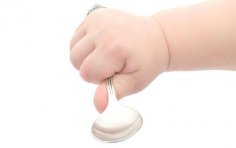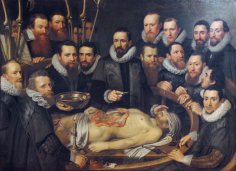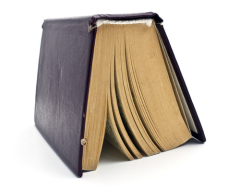
According to popular belief, newborns are sometimes born not empty-handed, but even fully clothed. What determines this unusual “equipment,” and how does it differ among different cultures?
English spoons and strong teeth
Residents of the former Soviet Union are well aware of the best gift for a newborn or christening: a silver spoon. It's usually said to be given “for a tooth.” A newborn, of course, doesn't have any teeth yet, and neither does the child being christened (traditionally, this happens on the 40th day after birth). This contradiction points to two things.
First, a spoon was originally given with this saying when a baby's first tooth emerged. The giver was supposed to lightly tap it to ensure strong and healthy teeth. Second, the custom of giving a silver spoon to a child was borrowed from 15th-century England and had nothing to do with teeth.
Interestingly, in ancient times, this humble piece of cutlery was an indicator of its owner's wealth. Given that common people ate with their hands, the mere possession of a spoon, especially one made of precious metal, was a matter of great display. In the Middle Ages, wealthy farmers and artisans wore it on their belts along with their keys. This custom, strange to modern eyes, was intended to demonstrate that the “bearer” of the spoon, despite their dirty hands and nails, was not a serf and was wealthy.
This is where the English expression “to be born with a silver spoon in one's mouth” comes from, meaning to be born into a wealthy family. If wealthy parents were surprised to discover that their newborn's mouth was empty, this situation had to be corrected.
Silver spoons became popular in England in the early 15th century. By the 16th century, they had become a popular gift from godparents to godchildren. For example, in Shakespeare's play “Henry VIII,” when Cranmer doubts his suitability as godfather to the Infanta Elizabeth, the king quips, “Now, now, my lord, spoons are a small expense!”
This last statement is debatable, given that baptismal spoons were often true works of art. For example, the so-called “apostolic spoons” were particularly popular. The handle of each was engraved with the figure of a particular apostle. Moreover, each held a symbolic object: Peter a key, Judas a bag of money, and so on. There were 12 such spoons; other collections included a 13th spoon, larger than the others, depicting Jesus, which was intended for the owner.
The fact is that even in ancient times, people noticed that silver could partially disinfect liquids. Furthermore, the lunar metal was long believed to possess magical properties, including protective ones. Such cutlery was very useful for a defenseless child.
Born with their own wardrobe
If you were unfortunate enough to be born without a silver spoon, don't worry. In this dangerous world, it's better to be born with a silver spoon. This, as we know, can protect you from any misfortunes in the future.
“I was born in a caul, and the newspapers advertised it for sale at the cheap price of fifteen guineas. But either sailors in those days had little money or little faith, and they preferred cork belts…” – so it is written at the very beginning of Charles Dickens's book “The Life of David Copperfield, as Told by Himself.”
Yes, such “wealth” could even be sold… or stolen. Betty Smith's novel “A Tree Grows in Brooklyn” tells how a midwife stole such a shirt and later sold it to a sailor for two dollars. It was believed that such a relic would prevent its owner from drowning. I imagine sailors had to wait in line for years to get such a talisman. After all, a shirt is found on only one in 80,000 babies.
In other languages, there are all sorts of “elegant” synonyms – Caput galeatum (Latin) – “head in a helmet”, “to be born in hood/veil” (English) – to be born in a hood/veil, etc.
Essentially, the notorious “caul” is the unruptured fetal membranes that envelop the baby's head or face. Since this can lead to unpleasant consequences, a child who survived under such circumstances was considered especially lucky.
However, there were some peoples who considered this phenomenon the work of dark forces. For example, the Romanians. Vlad Dracula's compatriots believed that anyone born with a caul would inevitably become a vampire after death.
Of course, one may not believe in the increased luck of such people, but names like Napoleon, Charlemagne and Sigmund Freud seem to speak for themselves.
Be that as it may, people are always inclined to worry about their children. What seems like a ridiculous superstition to us today is based on the observations and experiences of hundreds of generations. This folklore was born during long, sleepless nights spent watching over the cradle, amidst a once-high infant mortality rate.





